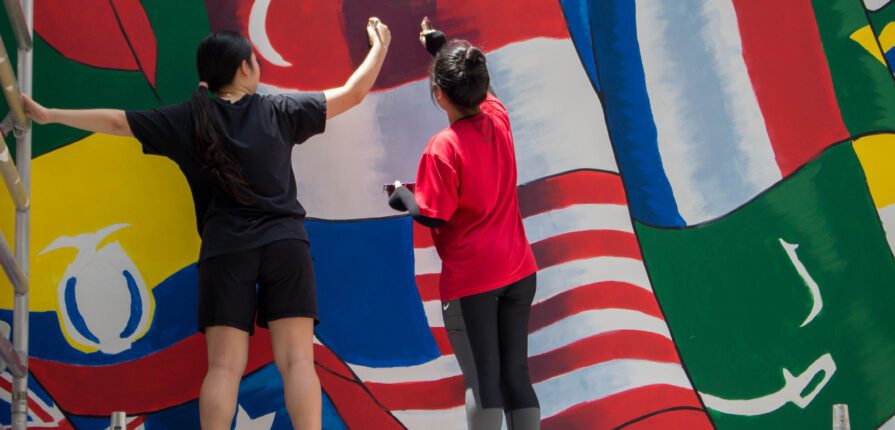Celebrating Our Diverse Classrooms
The well-known Chinese actor, Philanthropist, and UNICEF Goodwill Ambassador Jackie Chan once declared, “We live now in a global village and we are in one single family. It’s our responsibility to bring friendship and love from all different places around the world and to live together in peace.” Raffles American School agrees with this statement wholeheartedly. We value our differences and believe those differences are what can unite us, enable us to understand others with more clarity, and aid us in achieving greatness.
How does diversity in the classroom influence a student’s education?
First, we must recognize that diversity in the classroom comes from many different factors, the students’ skills, race, gender, socioeconomic background, and more. We want this diversity in the classroom because, as The University of Rhodesia Island describes it, “the exploration and incorporation of these differences to enrich learning in our classroom” (Kampen, 2020).
There are several benefits to having a diverse classroom, many of which provide students with a direct view of the world and how people can differ from one another. Having a diverse classroom and encouraging students to cooperate will help them understand that despite their differences, everyone should be treated equally (Cartwright, 2020).
Through cooperative learning, students will also be able to think critically from other perspectives. When students with different backgrounds come together, studies show that their performance in academics increases because they are able to solve problems by viewing them from different angles, ones outside their own lived experiences. Strengthening this skill in the classroom makes them more aware of the world around them and yields better results (Kampen, 2020).
One study by Schwarzenthal et al. (2019) has found that diverse classrooms in Germany have increased students’ motivational, cognitive, metacognitive, and behavioral Cultural intelligence (CQ). High cultural intelligence (CQ) is defined as, “interacting with others who have different cultural affiliations (motivational CQ), know about norms, values, and behaviors in different cultures (cognitive CQ), are aware that culture may influence their own and others’ behavior and thinking (metacognitive CQ) and use appropriate behavior in culturally diverse situations (behavioral CQ)”. The study also supports the fact that positive cooperation and contact among diverse students show greater openness to outgroups, diverse friendships, and reduce prejudice (Schwarzenthal et al., 2019).
Schools that encourage inclusivity of all students reduce prejudice and the stereotyping of others. Taking this initiative also creates a safer environment for students and makes them feel like they are on equal footing with their peers. Encouraging students to cooperate and to understand each other can also reduce bullying (Smith, 2017).
Raffles American School celebrates the diversity of our student body in and outside of the classroom. In class, educators value students’ cooperation during activities because not only they are applying the curriculum by working together, but they are also learning to work with a wide variety of diverse backgrounds. Outside the class, RAS holds an annual celebration of cultural diversity, International Day. Our students, who come from all over the world, get to honor and display their cultures through traditional attire, cuisine, and the sharing of stories.
References
Cartwright, D. (2020, December 11). The Benefits of Diversity in Schools. Qnstux. https://online.queens.edu/resources/article/benefits-of-diversity-in-school/
Kampen, M. (2020, November 6). 7 Ways to Support Diversity in the Classroom [With Examples]. Prodigy Education. https://www.prodigygame.com/main-en/blog/diversity-in-the-classroom/
Schwarzenthal, M., Schachner, M. K., Juang, L. P., & van de Vijver, F. J. R. (2019). Reaping the benefits of cultural diversity: Classroom cultural diversity climate and students’ intercultural competence. European Journal of Social Psychology, 50(2), 323–346. https://doi.org/10.1002/ejsp.2617
Smith, J. (2017, August 15). How Students Benefit from School Diversity. Greater Good. https://greatergood.berkeley.edu/article/item/how_students_benefit_from_school_diversity


